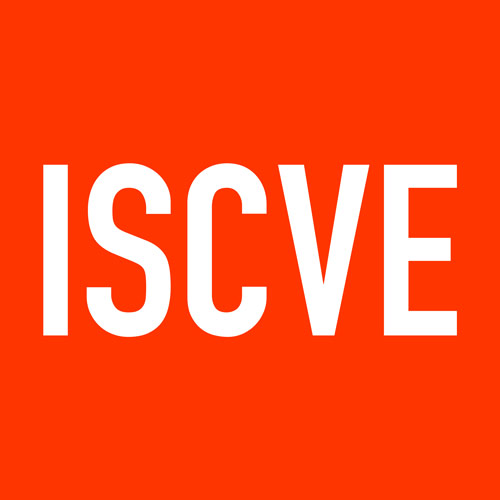Gilding Lilies or Awakening Ugly Ducklings?
University of Derby
As a continuing process at the university where I lecture, students are encouraged to improve and hone their CV writing and job application skills. This semester was a depressing reminder of the current state of the world. Instead of asking the second-year students to find a job and write a mock cover-letter to provide an updated CV for, I was obliged to provide some examples for the students of generic jobs. That is not to say that there are no jobs out there, but I think reminding the students that things are not what they were a year ago when they began this process is not a positive move.
Do I think things will change in the near future? I, like many of you, just do not know. I worry for the third-year students that have such an uncertain graduation looming. I am sure by the time the current second-years reach the job market things will be very different.

So, what can we do now? From a teaching perspective, we can just continue preparing students to be the best they can be.
To give them insight into how employment works; into how they can best prepare themselves, and in that way, present themselves in the best possible light when opportunities do arise. Opportunities, however, can also be created . Teaching them entrepreneurial skills is very much at the core of some of our modules. This may seem strange in a degree that is predominantly an engineering/science-based course, but we have to be aware that we are preparing students for life beyond graduation.
Having come into education from a career in industry, predominantly as a freelancer but also involved in running several small companies, I am very much aware of the difficulties in finding work and also sustaining employment, be it for yourself or others.
At Derby, we try not to sugar-coat the process. I am, however, very positive about our graduate’s career potentials. Throughout their personal development training, they are challenged to reflect on their skills and encouraged to develop both existing, and new opportunities. Now, this can sound like typical management speak, so what does it equate to in real terms?
The average CV of a first-year student is a fairly short affair, GCSE’s, A levels, possibly some extra awards and qualifications. There will be a shortlist of hobbies. It is important even at this stage to encourage students to tease out the positives of their lives so far.
For me, a regular part-time job, especially one that has been kept up for a long period of time shows dedication. If you can turn up early on a Saturday morning for work all through your teens, you will probably turn up for work for me.
All experience is potentially good experience. Working in a shop can teach you many skills. How to deal with the general public, how to use a till, responsibility. Many jobs I did when I was younger taught me valuable skills that I was able to use later on in life.
Delving into hobbies, clubs and activities can provide a rich seam of skills and interests that are important to a potential employer. I am sure I am not the only ISCVE member whose childhood interests were playing in bands, building speakers and generally being involved in anything electronic/electrical that was going?
For many of us, and for a lot of my students, this was their first training ground. Drama club, school performances, local bands, maybe church. The list is familiar I am sure.
So, are we gilding lilies or awakening ugly ducklings?
It is probably a bit of both and possibly neither. The regimen of employability is reaching further into youth and in a more structured formulaic way every year.
I was honestly surprised in my naïve way that most university first-years had CVs they had composed at school, and already used to get part-time jobs. The youth market is already geared up to present the next wave of job candidates. I think I was blind to how things had changed, but then I realised as an employer I had already received documents from these nascent employees – local sixth-formers trying to get ‘work experience’, usually around May, once exams were over.
I am sure many of you will have received the optimistic letters from students seeking a short ‘internship’, as they now seem to be called. My second-years are already old-hands at this game. Some had even been lucky and managed a couple of weeks with a local studio, production company or theatre. Those that had had mostly reaped the benefits of early contact with the industry were hooked!
As an employer, I had always been positive towards work experience but rarely offered it. There was never a convenient time, either too busy or not enough work to do. It is too time-consuming to babysit a beginner – far easier and faster to do a job yourself. Yet I had always tried to be pro-active in other ways, encouraging students to come down to shows, do a few hours, help out, watch the show. I think I took this route because I knew it was for a short and finite time. I think maybe I was afraid of having to ‘entertain’ someone for a longer period, make more of a commitment.
Talking to the students now I know how right I was to invite people to work, to give them that insight into my world; my working day. It was, after all, a chance sitting in on a recording session at Abbey Road as a teen that had helped fan the flame of my enthusiasm. I also now know it was wrong of me not to make that longer commitment, the ‘weeks work experience’.

I had forgotten how bewildering and yet exciting even a boring day at work can be if you don’t know what a boring day is! We become inured to our daily grind, but if you are a teenager excited by just being in a warehouse of speakers, well, perspective is everything.
So, you may be asking, where am I going with this ramble?
Well, it is the age-old conundrum of experience. What do you put on your CV when you have never left education and your first real steps are still to come? You put down what you have. You look at all the things that make up why you want to do the job, why you want to work in this strange business of sound, lights, video and communication. Some of that may have come from the occasional mentor; someone who encouraged you in the business; let you hang out, bewildered, confused and probably pretty useless in the warehouse for a week. Maybe they let you hang around a bit longer until you found your feet and made yourself useful.
Why do I write this now?
We will all be going through a period of change. One of the casualties of this pandemic is that many people, myself included, have left the workplace. I was lucky. I got a teaching position just in time to see my regular job of 35 years grind to a halt. Many of my colleagues have given up and retrained, moved on or retired. We will need a new generation of younger colleagues to replace them and we will need them soon.
If this article strikes a chord with you then reach out to your local college, school, uni. Young people have many choices of career, let us try and enthuse some of the good ones to join us in the profession we all love and to join the ISCVE. Let us also put something back in by mentoring that next generation. Let us give more young people some real practical experience to put on their CVs. Yes, you will get the occasional youth who turns up late the first day and you never see again, but you will also get the odd face that will turn up again, five, ten years later and might be paying you for your services.
Jon Burton is a Senior Lecturer in Sound, Lights and Event Technology at the University of Derby.
After a long career in the music industry, working as a sound engineer, primarily in live concert touring. Jon has worked with many acts from Bryan Ferry to Radiohead, The Stereophonics to Pulp., working most recently as a Front of House engineer but also a monitor engineer. Over the last twenty years, I have been giving guest lectures and masterclasses around the world. His passion remains sound and now he is passing on his many years of experience to the students at Derby.



